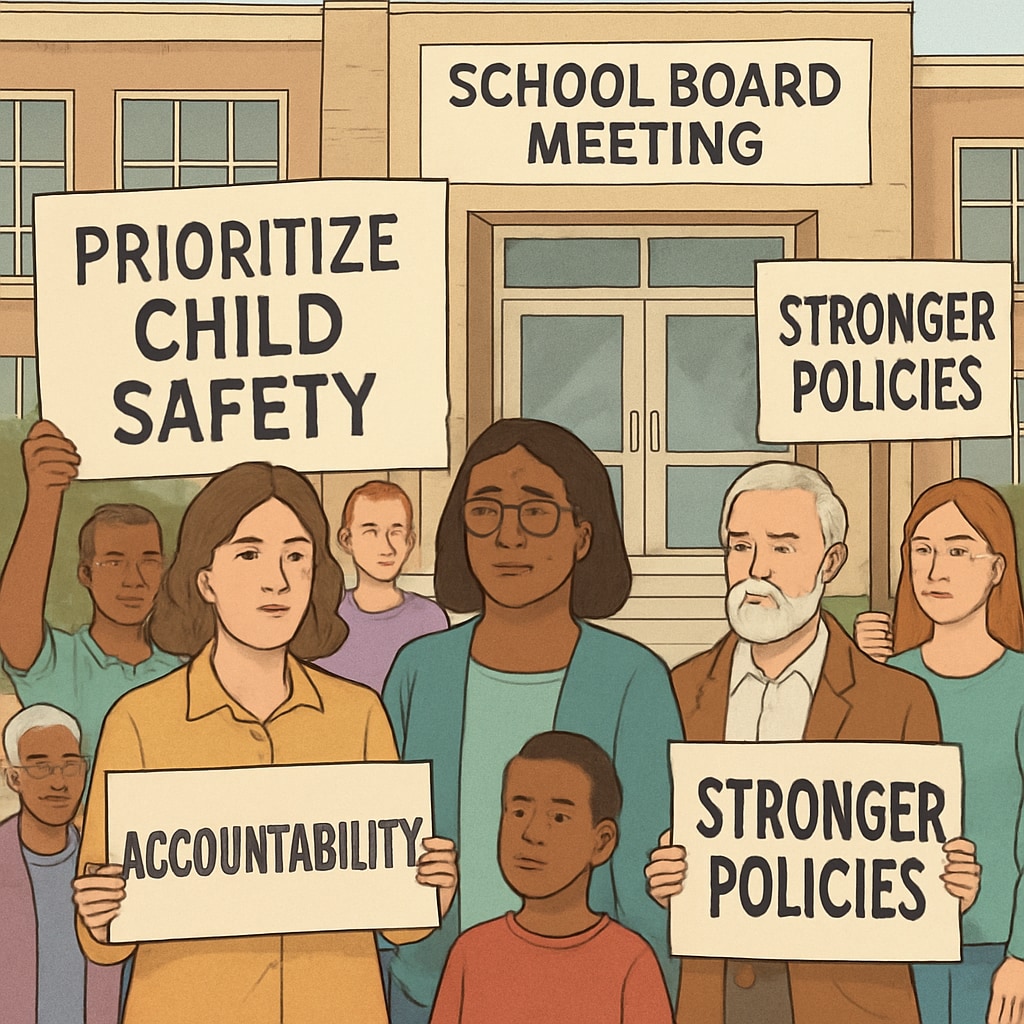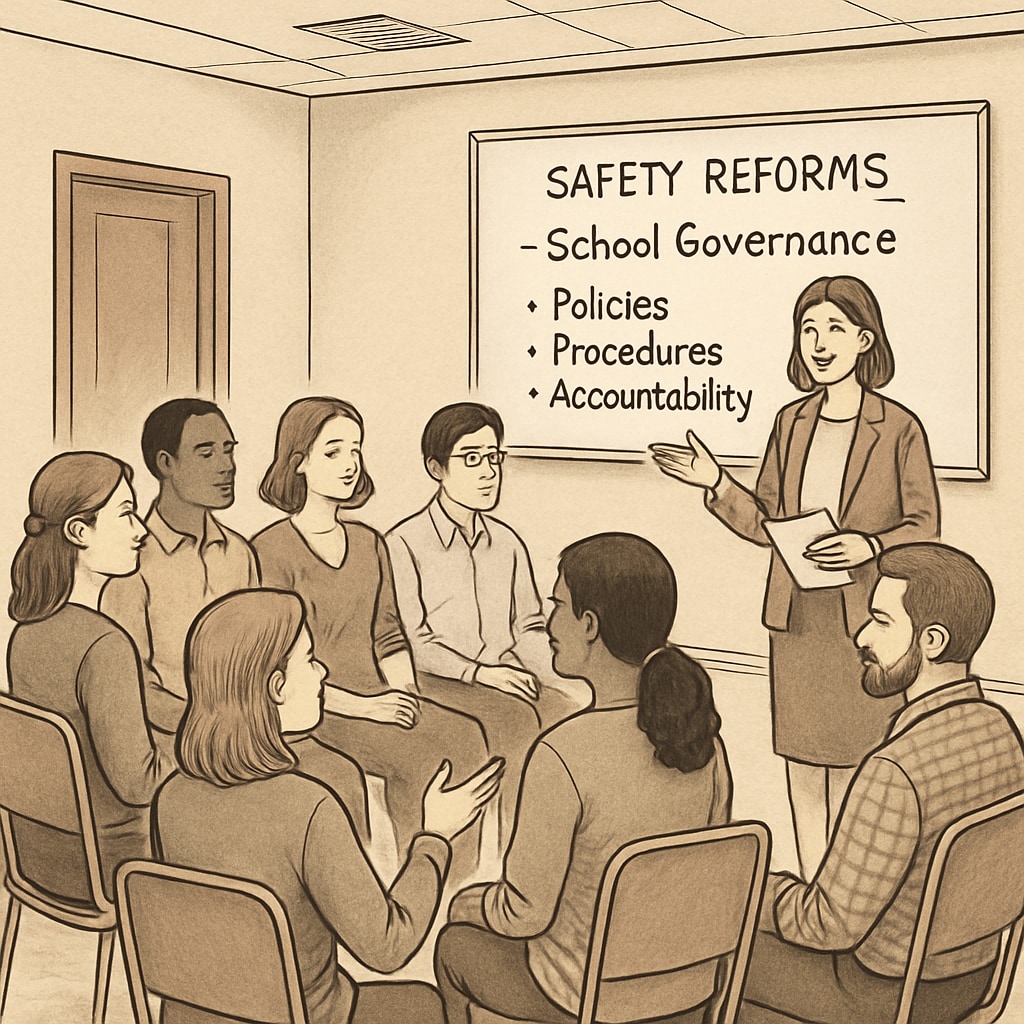Recent protests in a small Maine town against a school board member with a violent criminal history have brought the issues of school board governance, child safety, and community action to the forefront of public discussion. The controversy has sparked a nationwide debate about the moral and legal standards required for educational leadership roles. This case underscores the tension between ensuring student safety and respecting the legal rights of individuals seeking to rehabilitate and serve their communities.

The Growing Importance of School Board Accountability
School boards play a critical role in shaping the policies and environment of educational institutions. They oversee budgets, curriculum decisions, and, most importantly, the safety and well-being of students. When individuals with violent criminal records are elected or appointed to these positions, it raises valid concerns about their ability to prioritize child safety and make ethical decisions.
In the Maine case, the individual in question reportedly had a history of violent behavior, including incidents that endangered others. While the law may allow individuals with past convictions to run for public office, many community members feel that the well-being of children should take precedence. They argue that such positions demand higher moral and ethical scrutiny than other roles in public service.
The protestors have called for stricter background checks and transparency in the nomination and election processes. Their actions are part of a broader movement emphasizing the need for rigorous screening of candidates for school board positions to ensure they are fit to make decisions that affect children’s lives.
Balancing Legal Rights with Community Safety Concerns
One of the core debates surrounding this issue is the balance between an individual’s right to rehabilitation and the community’s right to demand safety and ethical governance. Critics of the protests argue that denying someone with a criminal past the opportunity to serve is a form of discrimination and undermines the principle of second chances. However, proponents of stricter governance standards counter that certain roles, particularly those involving children, require higher levels of trust and integrity.
Legal experts point out that while federal and state laws outline general eligibility criteria for public office, they often lack specific provisions for positions that directly impact vulnerable populations, such as students. This legal gap leaves communities to grapple with difficult decisions, as seen in Maine. To address these concerns, some states are considering legislative reforms that would establish clear guidelines for vetting school board candidates.

Proposed Reforms: Striking the Right Balance
To resolve the tensions between community demands and individual rights, several reforms have been proposed:
- Enhanced Background Checks: Implementing mandatory background checks for all school board candidates to identify any history of violent or inappropriate behavior.
- Community Oversight Committees: Establishing independent committees to review the qualifications of candidates and provide recommendations to voters.
- Transparency in Elections: Requiring candidates to disclose their criminal history and explain how they have rehabilitated, enabling voters to make informed decisions.
- Legal Provisions for Sensitive Roles: Introducing legislation that sets stricter eligibility criteria for positions involving children’s welfare, such as school board memberships.
These measures aim to create a system where community safety is prioritized without entirely excluding individuals with a criminal past from contributing to public service. Such reforms could provide a blueprint for other communities facing similar challenges.
The Role of Community Action in Shaping School Governance
Community involvement remains a cornerstone of effective school governance. The protests in Maine highlight the power of collective action in holding public officials accountable and advocating for change. By organizing demonstrations, attending school board meetings, and engaging with local media, residents have brought national attention to an issue that often goes unnoticed.
However, community action must also be constructive and solutions-oriented. Beyond protests, stakeholders should focus on collaborating with school districts, legal experts, and policymakers to implement sustainable reforms. This approach ensures that the momentum generated by public outcry translates into meaningful change.
As the Maine case continues to unfold, it serves as a reminder of the complexities involved in balancing safety, governance, and rehabilitation. While there are no easy answers, the dialogue it has sparked is a crucial step toward creating safer and more accountable educational environments.
Readability guidance: This article uses short paragraphs and clear headings to improve readability. It balances active and passive voice, incorporates transitions, and avoids overly complex sentences. Lists are used to summarize key points, ensuring accessibility for a broad audience.


